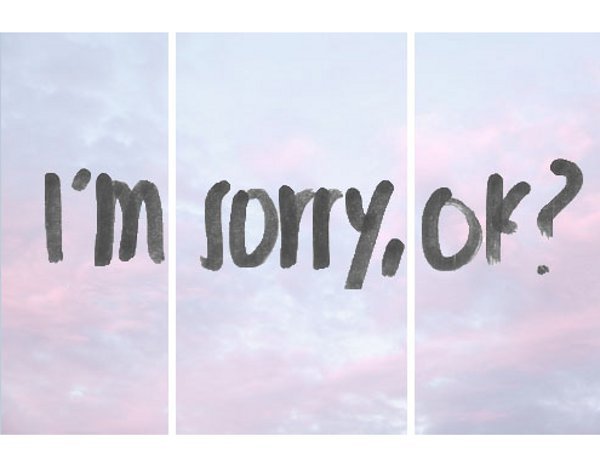
The UK Court of Appeals did not find Apple’s non-apology funny. After ruling in favor of Samsung back in July, the court ordered Apple to issue an “apology” (because it totally works for five-year-olds all the time, right?). After fighting the order for several months, Apple finally apologized in spectacular fashion—by affirming that Samsung didn’t copy Apple’s products because they’re totally uncool. This was clearly not what the court had in mind, and Apple has been ordered to take down the statement within 24 hours and replace it with a more sincere one.
To be clear, the court had ordered Apple to state clearly that Samsung did not infringe on its iPad design in developing the Samsung Galaxy—which I didn’t know you could legally do in the developed world, but lo and behold…
Apple’s snarky statement took snippets from the court decision in which the judge compared the two products and mused that the iPad has “a cool design,” while the Samsung Galaxy is “not as cool.” In the conclusion of the statement, Apple points out that courts in the U.S. and Germany have found Samsung guilty of infringing on Apple’s patents.
“I’m at a loss that a company such as Apple would do this,” Judge Robin Jacob reportedly said. “That is a plain breach of the order.”
The court has ordered Apple to remove the statement within 24 hours and replace it with one that includes a note on the correction. But like a ticked-off third-grader who’s just been told to apologize and say it like he means it, Apple has asked the court for a full two weeks to make the changes necessary. Because it’s not like they’re a technology company or something…
Back in August, a U.S. jury determined that Samsung had, indeed, infringed on Apple’s patents. Samsung was ordered to pay Apple $1.05 billion, which was less than half of the $2.5 billion that Apple was demanding for “irreparable harm” done to its business.
During the U.S. case, Apple charged that Samsung had been making squared off, boxy phones before the release of the iPhone, and only then did it begin making phones with rounded corners. Samsung, however, charged that it had been in the process of developing phones with rounded corners before the iPhone’s 2007 release.
That defense seemed to fall apart, however, when Apple dug up a 2010 document written by Samsung engineers that compared the iPhone to the Galaxy S and made suggestions as to how Samsung’s devices could imitate the iPhone design.
Apple’s specular statement is below:
Samsung / Apple UK judgment
On 9th July 2012 the High Court of Justice of England and Wales ruled that Samsung Electronic(UK) Limited’s Galaxy Tablet Computer, namely the Galaxy Tab 10.1, Tab 8.9 and Tab 7.7 do notinfringe Apple’s registered design No. 0000181607-0001. A copy of the full judgment of the Highcourt is available on the following link www.bailii.org/ew/cases/EWHC/Patents/2012/1882.html.
In the ruling, the judge made several important points comparing the designs of the Apple and Samsung products:
“The extreme simplicity of the Apple design is striking. Overall it has undecorated flat surfaces with a plate of glass on the front all the way out to a very thin rim and a blank back. There is a crisp edge around the rim and a combination of curves, both at the corners and the sides. The design looks like an object the informed user would want to pick up and hold. It is an understated, smooth and simple product. It is a cool design.”
“The informed user’s overall impression of each of the Samsung Galaxy Tablets is the following. From the front they belong to the family which includes the Apple design; but the Samsung products are very thin, almost insubstantial members of that family with unusual details on the back. They do not have the same understated and extreme simplicity which is possessed by the Apple design. They are not as cool.”
That Judgment has effect throughout the European Union and was upheld by the Court of Appeal on 18 October 2012. A copy of the Court of Appeal’s judgment is available on the following link www.bailii.org/ew/cases/EWCA/Civ/2012/1339.html. There is no injunction in respect of the registered design in force anywhere in Europe.
However, in a case tried in Germany regarding the same patent, the court found that Samsung engaged in unfair competition by copying the iPad design. A U.S. jury also found Samsung guilty of infringing on Apple’s design and utility patents, awarding over one billion U.S. dollars in damages to Apple Inc. So while the U.K. court did not find Samsung guilty of infringement, other courts have recognized that in the course of creating its Galaxy tablet, Samsung willfully copied Apple’s far more popular iPad.
Image source: wordpress.com



















